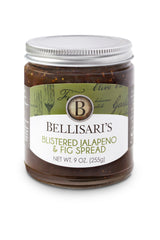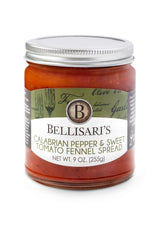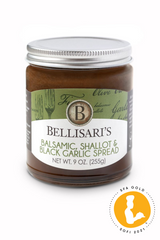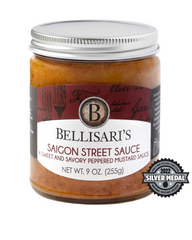Spice Substitutes: Save the Day with a Few Sneaky “Fill-Ins”
Shhhhh – They won’t Know the Difference!
Whether you’re cooking a fabulous celebratory feast or just regular weeknight dinner for the family, getting a recipe half-way finished only to realize you are out of a spice or seasoning that is very important to the flavor of the final result is the worst! Don’t overreact and throw it away; instead consult this list of substitutions. Chances are, nobody will even notice the change. If you find yourself missing something in your spice rack, here are a few smart substitutions for spices and herbs you can try in a pinch.
- Allspice: ground cinnamon, dash ground nutmeg, or dash ground cloves
- Anise seed: fennel seed or a few drops anise extract
- Cajun seasoning: for 1 tsp., substitute ½ tsp. white pepper plus ½ tsp. garlic powder, ½ tsp. onion powder, ½ tsp. cayenne pepper, ½ tsp. paprika, and ½ tsp. black pepper
- Cardamom: ground ginger
- Cinnamon: nutmeg or allspice (use only ¼ of the amount)
- Chili powder: dash bottled hot pepper sauce plus a combination of dried oregano and ground cumin
- Cloves: allspice, cinnamon, or nutmeg
- Cream of Tartar: for ½ tsp. of cream of tartar, substitute 1 tsp. lemon juice or white vinegar.
- Cumin: chili powder
- Curry powder: Mix ground turmeric, ground ginger, ground black pepper, ground coriander, ground cumin, and chili powder.
- Fajita seasoning: for 1 tsp. fajita seasoning, substitute 1½ tsp. ground cumin plus ½ tsp. dried oregano, crushed; ¼ tsp. salt; ¼ tsp. cayenne pepper; ¼ tsp. black pepper; ⅛ tsp. garlic powder; and ⅛ tsp. onion powder
- Garlic powder: 1 clove fresh garlic or ½ tsp. bottled minced garlic
- Ginger, ground: ground allspice, ground cinnamon, ground mace, or ground nutmeg.
- Ginger, fresh: for 1 tsp., substitute ¼ tsp. ground ginger
- Italian seasoning: blend of any of these: basil, oregano, rosemary, and ground red pepper
- Mace, ground: ground allspice, ground cinnamon, ground ginger, or ground nutmeg
- Marjoram: basil; thyme; or savory
- Mustard, dry: for 1 tsp., substitute 1 Tbsp. prepared yellow mustard (for use in cooked mixtures)
- Nutmeg, ground: ground cinnamon, ground ginger, or ground mace
- Oregano: thyme or basil
- Poultry seasoning: For 1 Tbsp., substitute 1 tsp. dried sage, crushed plus 1 tsp. dried thyme, crushed; 1 tsp. dried marjoram, crushed; ½ tsp. dried rosemary crushed; and a pinch each black pepper and celery salt
- Pumpkin pie spice: For 1 tsp., substitute ½ tsp. ground cinnamon plus ¼ tsp. ground ginger, ¼ tsp. ground allspice, and ⅛ tsp. ground nutmeg.
- Red pepper: dash bottled hot pepper sauce or black pepper
- Rosemary: thyme; tarragon; or savory
- Saffron, ground: dash ground turmeric (for color)
- Sage: poultry seasoning; savory; marjoram; or rosemary
- Savory: thyme; marjoram; or sage
- Seasoning salt: equal amount of snipped fresh herbs or equal amount of salt-free seasoning blend
- Tarragon: chervil; dash fennel seed; or dash aniseed
- Thai seasoning: For 1 tablespoon, mix 1 tsp. ground coriander, 1 tsp. crushed red pepper, ¼ tsp. salt, ¼ tsp. ground ginger, ¼ tsp. garlic powder, and ¼ tsp. onion powder.
- Thyme: basil; marjoram; oregano; or savory
If a recipe calls for fresh herbs but you only have dried, you can swap in the dried version. But because dried herbs tend to have a more concentrated, potent flavor than fresh herbs, you'll need less. I recommend substituting one-third the amount called for. This means the correct ratio is 1 tablespoon of fresh herbs to 1 teaspoon of dried herbs. Another way to decide how much of a substitute to use is to start with half of the amount the recipe calls for, and add the spice until it suits your taste. So if you're looking for a quick cinnamon substitute, you should only use ½ tsp. of allspice or nutmeg in place of 1 tsp. to start since they are stronger in flavor.
Here are a few more tips for selecting, storing, and purchasing spices.
Selecting Spices: To guarantee that you are using fresh spices, you should buy them in small quantities and date them. Replace old spices once a year. You can tell if a spice is fresh by its color and aroma. When fresh, most spices have a bright color and a strong aroma when you open the container. If either the color or the aroma seems weak, replace the spice.
Storing Spices: Your spices will keep their flavor longer if they're stored in a cool, dry place. Keep in an air-tight container. Avoid storing in racks or cabinets over the range where they will be exposed to heat and humidity. Whole spices stay fresh for up to 2 years and ground spices for about 6 months.
Purchasing Spices: You may prefer to replace all of your ground spices once a year. November and December are particularly good times to replace spices due to supermarket sales for holiday baking.
Picking the right spice substitute can be challenging, as many spices possess unique character and flavor profiles that are difficult to replicate. Luckily, there are some good substitutes you can employ to maintain the general taste of a dish. With these sneaky substitutes, you should end up with a delicious, very close to the original flavor, and a final product that will put smiles on the faces of all who eat it.






